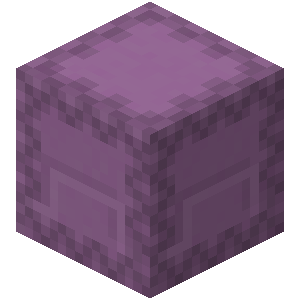Syntax
Dieser Inhalt ist noch nicht in deiner Sprache verfügbar.
Comments
Single-line comments start with // and continue until the end of the line.
Multiline comments start with /* and end with */.
// This is a single line comment/* This is amultiline comment */These comments are completely ignored by the compiler and will not show up in the generated data pack. If you want to include a comment in the data pack, you can use the doccomment syntax.
/// This is a doccommentLiteral Commands
Literal commands are commands that are directly included in the output.
They start with a / and are followed by the command.
/say Hello, world!This will result in say Hello, world! being included in the .mcfunction file.
Functions
Functions are blocks of code that can be executed.
They start with fn followed by the name of the function, parenthesis and a block of code.
Optionally they can be preceeded by annotations. When a function has the pub keyword in front of it, it will be accessible from other files.
#[tick]fn main() { /say Hello, world!}
#[deobfuscate]pub fn hello() { /say I can be called from other files!}This code defines a function called main that will be executed every tick.
Annotations
Annotations are special attributes that can be attached to functions.
They start with # followed by the name of the annotation in square brackets. Some annotations can have arguments assigned to them with the = operator.
Currently, the following annotations are supported:
#[tick]: The function will be executed every tick.#[load]: The function will be executed when the data pack is loaded.#[deobfuscate]: The function will keep the original name in the output (path of the.shu-file followed by the function name).#[deobfuscate = "path/to/function"]: The function will be named as specified in the argument.
Function calls
Functions can be called by using their name followed by parenthesis.
#[tick]fn main() { hello();}
fn hello() { /say Hello, world!}Imports
Functions from other files can be imported by using the from-import syntax.
namespace "foo";
from "./foo" import bar;
#[load]fn main() { bar();}namespace "foo";
pub fn bar() { /say Hello, world!}Multiple functions can be imported by separating them with a comma.
from "./foo" import bar, baz;Tags
In Minecraft, tags are used to group multiple items, blocks, entities, etc. together. In Shulkerscript, tags can be defined right in the code, where they are needed.
tag "foo" of "block" [ "minecraft:stone", "minecraft:dirt"]This will result in a tag of type block with the name foo containing the blocks minecraft:stone and minecraft:dirt.
If you want the tag to replace, instead of append to the existing tag, you can use the replace keyword.
tag "foo" of "block" replace [ "minecraft:stone", "minecraft:dirt"]The type has to be the name of the subfolder in the tags folder of the data pack. Most often you will use tags with
the types:
functionblockitementity_typefluidgame_event
But you can also use custom types, refer to this page for more information.
Conditional Statements
Conditional statements are used to execute code based on a condition.
They start with if followed by a condition in parenthesis and a block of code.
Optionally they can be followed by an else block.
if ("block ~ ~-1 ~ minecraft:stone") { /say On stone} else { /say Not on stone}To learn more about how to combine or negate conditions, refer to the if-else statement reference.
Execute Blocks
Execute blocks are used to execute a block of code in a specific context.
They consist of the keyword you would pass to the /execute command followed the argument as a string in parenthesis and a block of code.
as ("@a") { // execute as all players /say Hello, world!}Multiple execute blocks can be chained together by separating them with a comma.
positioned ("0 0 0"), in ("minecraft:overworld") { /setblock ~ ~ ~ minecraft:stone}Supported Execute Blocks
alignanchoredasatasatfacingifinonpositionedrotatedstoresummon
For general information on the execute command, refer to the Minecraft Wiki.
Groupings
Groupings are used to group multiple commands into one mcfunction file without declaring a new function.
This can be used for commands that need to be executed atomically.
group { /say Hello /say World}Run
The run keyword is used to evaluate the following expression and include the resulting command in the output.
run "say Hello, world!";Lua Code
The lua keyword is used to embed Lua code in your Shulkerscript code. It can be combined with the run keyword to include the result of the Lua code in the output.
run lua() { -- Lua code goes here return "Hello, Lua!";};